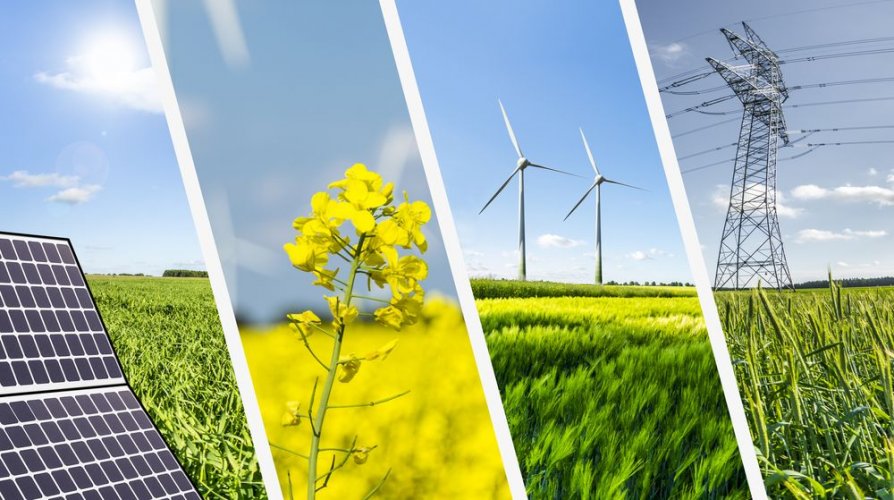On June 25, the day the EU accession negotiations began, the government approved the National Energy and Climate Plan (NECP) until 2030.
This was reported by the Ministry of Economy of Ukraine.
The ministry noted that the NECP was developed in accordance with the requirements of Regulation (EU) 2018/1999 and taking into account the best practices of EU member states, as part of its obligations as a contracting party to the Energy Community and in the process of gaining EU membership. It is a strategic document aimed at harmonizing environmental, energy and economic policies for the sustainable development of Ukraine.
The main goals of the NECP include:
- reduction of greenhouse gas emissions by 65% compared to the level of 1990;
- achieving a 27% share of renewable energy sources in total final energy consumption;
- deepening the diversification of sources and ways of supplying energy resources – no more than 30% from one supplier;
- primary energy consumption no more than 72.224 million t.e., final energy consumption 42.168 million t.e. (t.e. – a ton of oil equivalent).
"The national plan was prepared in record time – less than a year. The total investment needs are from $41.5 billion. Its implementation will not only contribute to the decarbonization of our country's economy, but will also open up significant opportunities for attracting resources for the implementation of the Plan," said First Deputy Prime Minister of Ukraine Yulia Svyridenko.
Director of the Secretariat of the Energy Community Artur Lorkovsky noted that this document will serve as a plan for the green reconstruction and recovery of Ukraine, stimulating assistance from the international community.
More than 1,500 representatives of various sectors and stakeholders, including the Ukrainian government, parliament, European partners, civil society, the public sector, local communities and representatives of neighboring countries, participated in the discussions of the NECP project.
"It is important for us that civil society joined not only the discussions, but also the creation of a document that brings us closer to EU membership. We will work together to transform NECP into concrete solutions, actions and investments. The cooperation of the state and civil society will contribute to the speed and success of recovery", – stressed the president of DiXi Group Olena Pavlenko.
According to Roman Nitsovich, director of research at the DiXi Group analytical center, the peculiarity of the Ukrainian NECP among the plans of EU countries is that, in terms of energy security, it includes goals and measures aimed at protecting and increasing the stability of critical infrastructure facilities. He stated that Ukraine was preparing this Plan in the conditions of a full-scale war, therefore it had to include a security component in it, without which further development and a green transition are impossible.
"In the short term, we must also take care of the physical and cyber protection of our facilities, in the medium term – to overcome import dependence and enter into net exports in certain industries, build a system of reserves according to the European model and adhere to the standards of reliability of gas and electricity supply", – he noted.
In the future, an independent advisory body – the Office of the Green Transition under the Ministry of Economy of Ukraine – will help coordinate the implementation of NECP.
Earlier, EcoPolitic reported that on March 21 Ministry of Economy of Ukraine presented the project of the National Energy and Climate Plan to the European Commission.





